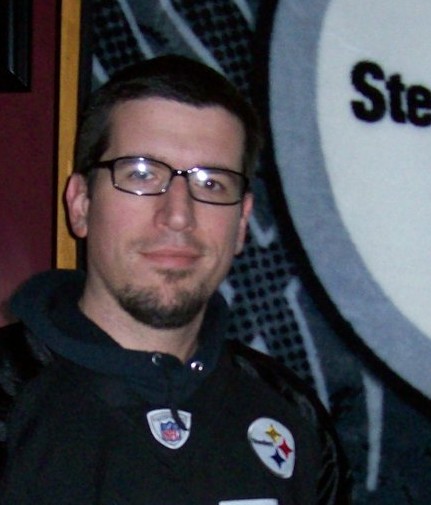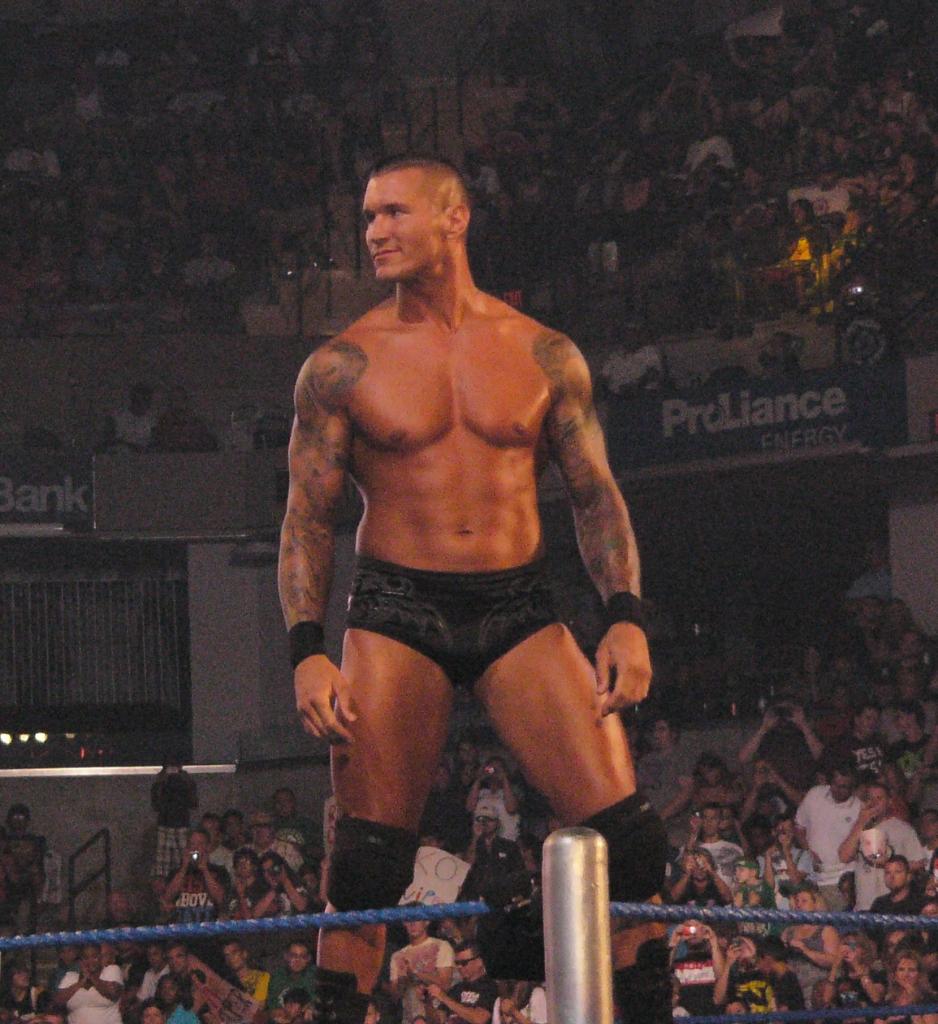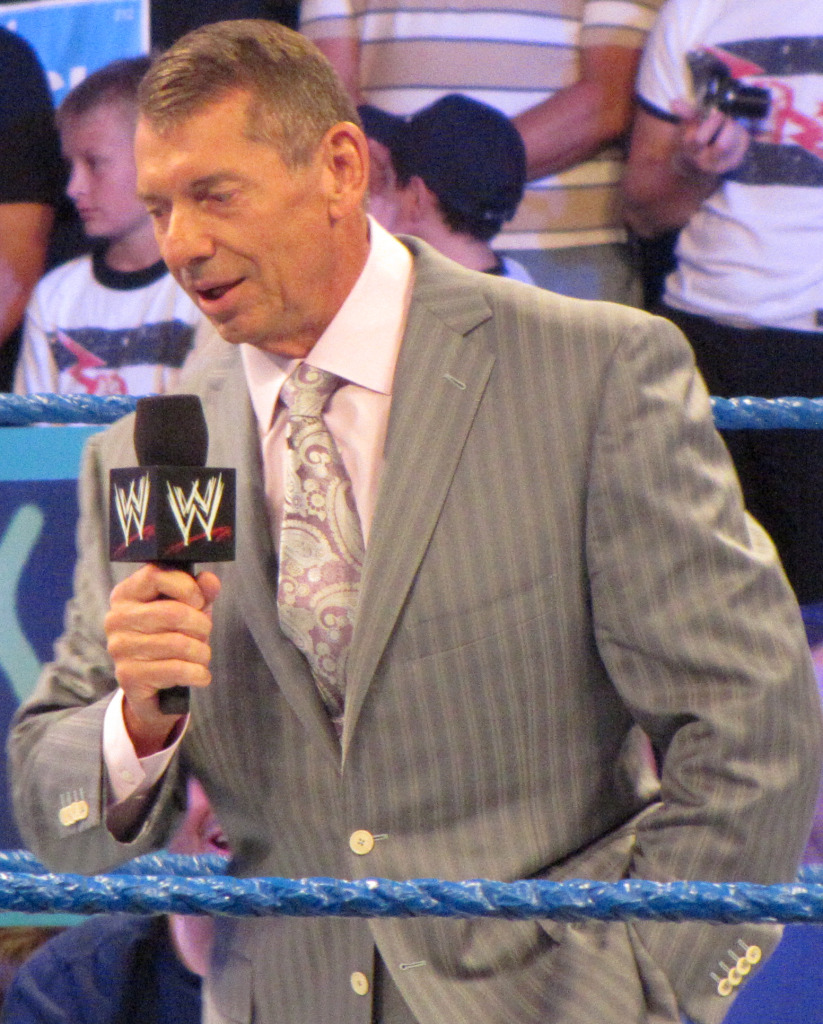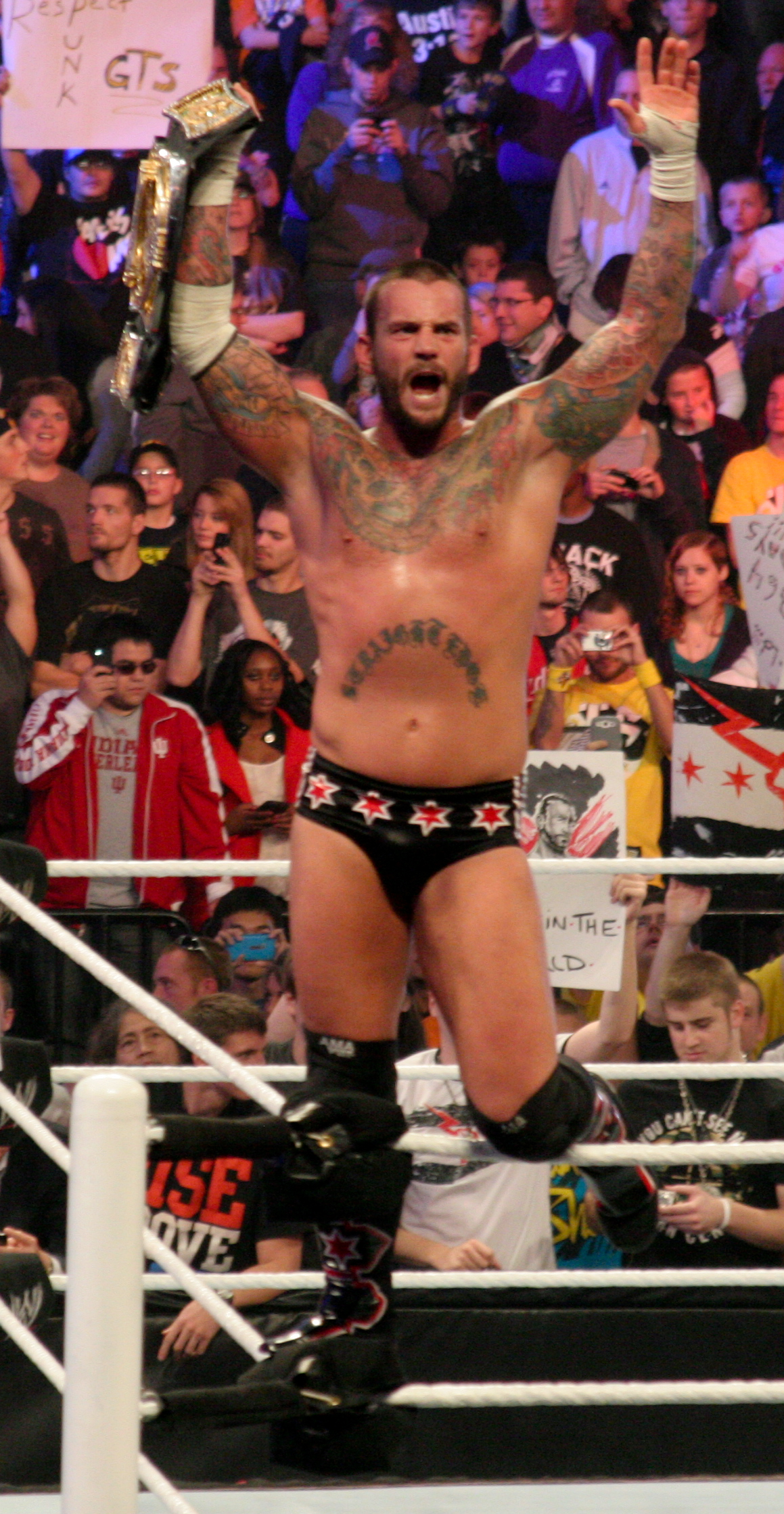Calinger: Vince McMahon’s WWE shenanigans reveal human nature
By J.W. Calinger
Every once in a while, I think, WWE Chairman Vince Mr. McMahon likes to play a good practical joke on the WWE Universe. McMahon never admits the nature or purpose of these jokes, but I think they exist nonetheless, and they probably are for the purpose of laughing at people who think they’re better than he is.
Take, for instance, the latest angle between John Cena and The Big Show. On its surface, it’s a classic good vs evil angle. Cena is the golden boy (or golden goose, which amounts to the same thing in McMahon’s eyes), and Show is the mean old giant who even sold out and started hanging out with the inept and corrupt bureaucrat, John Lauranaitis. Cena even manages to accuse Show of whining, just because Show talks about all the humiliating things he had to do while working for McMahon – like dressing as other wrestlers, playing the clown, and so on (he left out some shoot comments, like having to job to Cody Rhodes, but we all saw that happen anyway).
My buddy Rick pointed out some of the deeper aspects of this angle. Cena, as Rick duly noted, is acting like a jerk to Show. While Cena has spent most of his time in the WWE as a man so beloved to McMahon that he’d be pushed over Jesus (Rick’s suggested catch-phrase: You can walk on water, but U Can’t C Me), Show has spent most of his time in the no-man’s land reserved for superheavyweights (little or no time as a champion, general use as an enforcer or threat to the likes of Sheamus, Batista, or HHH). His gripes were just as legitimate as C.M. Punk’s rants about how McMahon usually passes over anyone who isn’t at least the size of a linebacker. Cena (the character) has little or no understanding of what Show (as opposed to Paul Wight) is going through. Yet, here he is, satirizing Show for being angry.
It isn’t the first time, either. Cena has gone after workers who have taken time off to rest, here and there, talking about how dedicated he has been to the business while some of the folks in the locker room have decided to rest once in a while, in the hopes of being able to walk at age 60. If a Republican politician said half as much about how people should take more responsibility for their own well-being, he’d be booed out of the building – but because Cena says it, these same fans who hate Bill O’Reilly manage to cheer their lungs out for John Cena for saying something strikingly similar.
It’s ridiculously easy to accuse McMahon of having a lack of moral sense. Everything he does, it appears, is for the Almighty Dollar, as opposed to many customary standards of behavior. He has tried to portray celebrity look-alikes as actual heads of state in at least two countries (including this one, of course). He’s promoted racist and sexist stereotypes with his characters and announcers (especially in the way he’s dressed African-American and Hispanic workers). McMahon has designed a ring entrance for G-d and taunted Him from the middle of the ring; he’s glorified swearing, sexually taboo or deviant behavior from adultery to necrophilia; and he’s humiliated his employees personally on all sorts of levels. All this he has done with a large juvenile audience, and all for a buck. He has stopped or scaled back his behavior only when the outrage was high enough to threaten his ratings and, therefore, his bottom line. Though I hold that mutually voluntary contractual behavior cannot be immoral – and, therefore, am not accusing McMahon myself – I’ve found his show distasteful enough, at times, that I’ve gone for long periods without watching his shows, and I know others who have forsaken it permanently. Most of us imagine that we’re of stronger moral fiber than McMahon. Some of us are; others simply may be imagining so in order to console ourselves for not being as wealthy as he. I’m guilty of thinking or, at least, hoping I wouldn’t take many of the steps he has taken.
In any event, I think McMahon likes to let himself know that many members of his audience aren’t nearly as true to their values as they think they are. Some of the jokes are simple and momentary. Every so often, a face (good guy) will cheat in a match. It’s behavior for which we boo a heel (bad guy) mercilessly, like choking, leaving the ring for a time out – but when a face does it, most of the audience not only won’t have a problem with it, but will cheer their hero. Jesse The Body Ventura used to point out this particular hypocrisy all the time, and when Gorilla Monsoon would protest, he’d say, Why is it OK for your guys to do it, but not for mine? This much, then, was made clear for all to hear, and most of the then-WWF audience ignored it completely and cheered for their favorites no matter what. Thus, we learned about how people may claim to be loyal to standards but, in practice, we’re more likely to be loyal to people. It may be harmless enough when we treat professional wrestlers this way, but we have a dangerous tendency to show the same behavior toward people who really count, like politicians and ministers, for instance. The jokes we never have come to understand – or, at least, we haven’t come to understand them since Ventura left pro wrestling for politics – are the more elaborate ones, in which entire angles have shown how willing the WWE Universe are to cheer for people they like, who engage in questionable behavior at best.
I still remember Macho Man Randy Savage’s heel turn (when a good guy turns bad) in February 1989. Macho and Hulk Hogan were in a tag team match against the Big Boss Man and Akeem (aka the One Man Gang), and Macho’s valet, Miss Elizabeth, was hurt by accident. Hogan carried Elizabeth back to the dressing room, and stayed there with her even after trainers were tending to her. All the while, of course, Macho was in the ring with two 400-pound opponents. Eventually, Elizabeth urged Hogan to return to the ring. He did, and won the match. Afterward, Macho started arguing with Hogan in the training room and, eventually, attacked him for supposedly lusting after Elizabeth. Now, Macho had treated Elizabeth like dirt, to the point where George The Animal Steele, in a heart-warming gesture, carried her off as a dull-witted but well-intentioned way of treating her as a lady deserves. When he turned face (became a good guy), people started excusing his borderline domestic violence, which may have been the first part of the practical joke. Still, in this particular case, Macho was in the right. Morally speaking, once Hogan knew that people were taking care of Elizabeth, he should have gone back out to the ring immediately and supported his partner. Macho had every right to be upset, and an objective person can excuse his throwing a punch at Hogan. Of course, millions of Hulkamanics (including me, at the time) were anything but objective; Macho became the most hated pro wrestler in creation overnight, and the pop (ovation) for Hogan at the ensuing WrestleMania V literally was loud enough to drown out his music for a few seconds. Macho may have been in the right, but Hulkamania was Hulkamania.
One can argue that the difference between a servant and a free thinker is that a servant is loyal to a person, whereas a free thinker is loyal to an idea. Our system of government is based on the idea that no one personality can rule outside of our Constitution and laws. Most religions in this country operate on the idea that though one must serve G-d, one should not think of a human being as a prophet, but should respect him according to how well he upholds the correct principles. That said, even many of us who profess to favor principles over personalities don’t do so as much as we think, and McMahon knows it. McMahon can measure, in dollars and ratings, exactly how much of a tendency we have to let someone we like commit moral offenses with impunity, or to ignore people we don’t like when they’re absolutely right. People we like, such as The Rock, can bully and embarrass announcers and stage workers, and the audience cheers. People we don’t like, such as The Big Show, can point out the hypocrisy of the audience, and they boo him (and, the following Sunday, many of them go to church and pray to a man who drew a lot of heat for pointing out people’s hypocrisy). Overall, any given member of the WWE Universe may have a better moral compass than Vince McMahon, or he might not. But let us give McMahon his due. He knows himself, and he is up front about who and what he is. Most of us can’t say the same, and he knows it. As long as we remain as we are, McMahon will be able to have quite a few private chuckles every time our mouths say we follow the right ideas, but our T-shirts and our applause say otherwise.
Also:
The 10 best wrestling finishers the past 30 years





